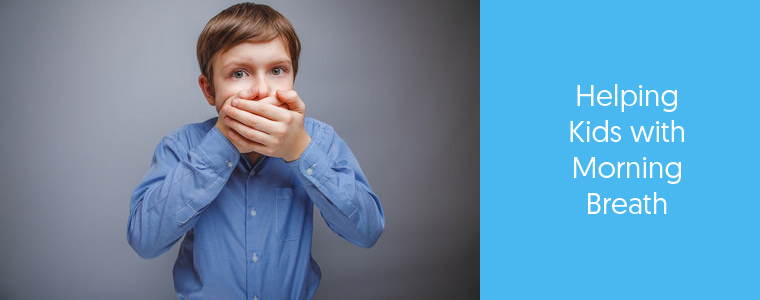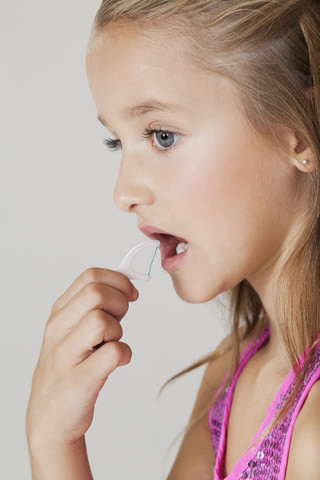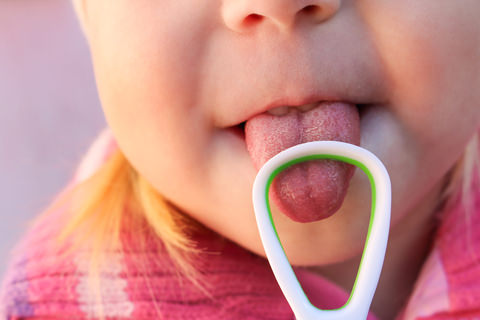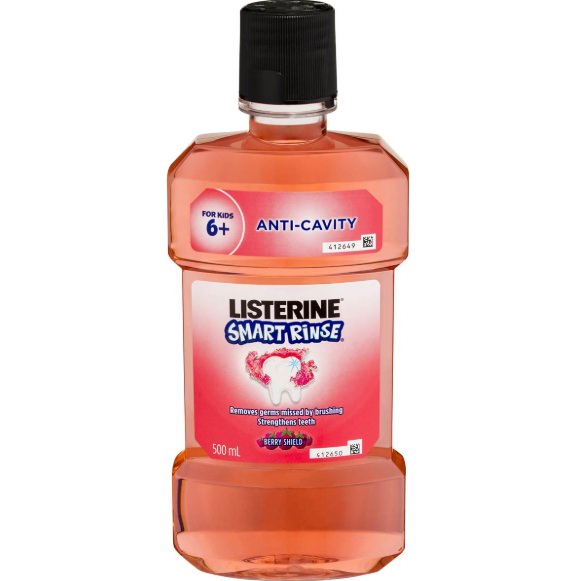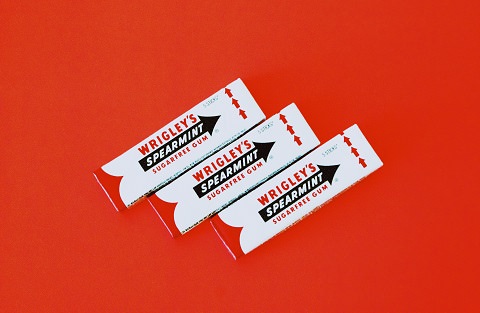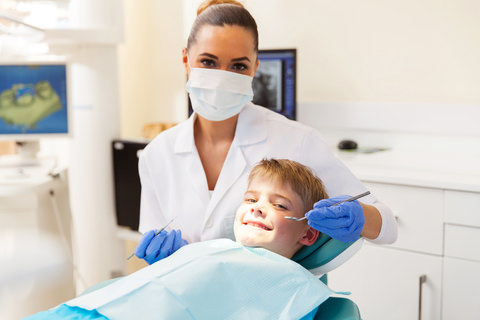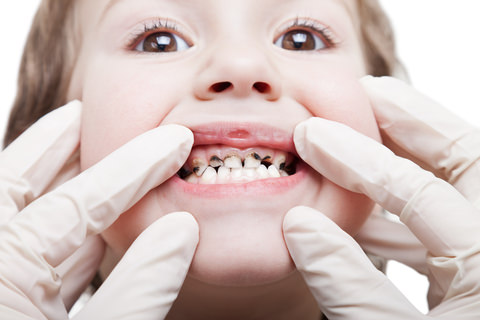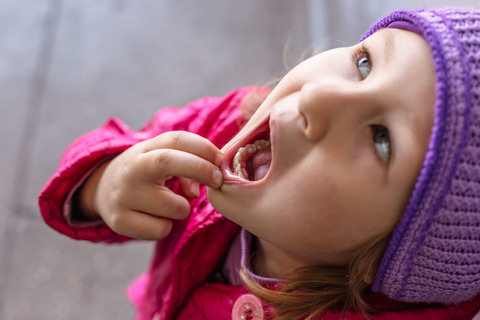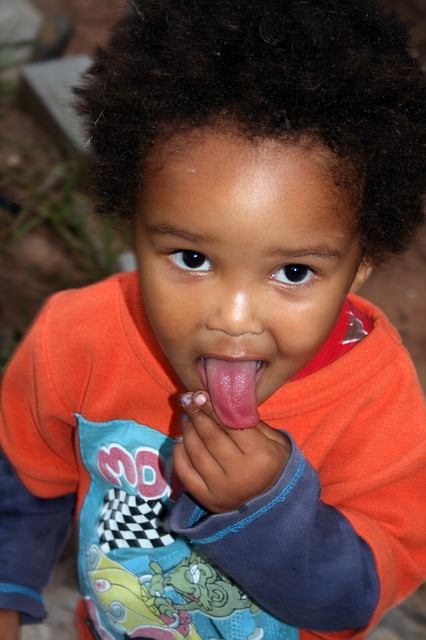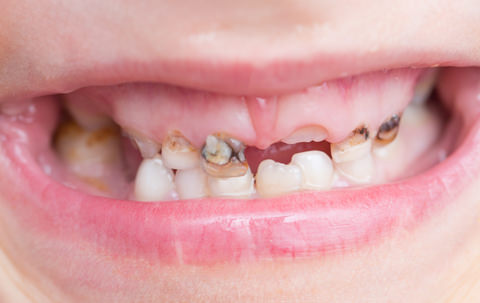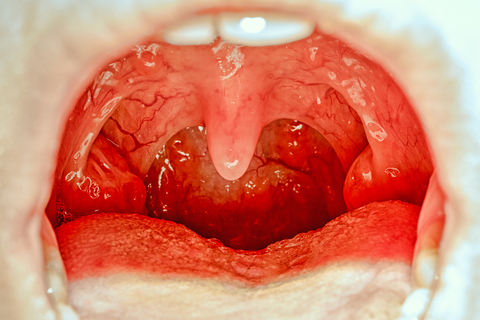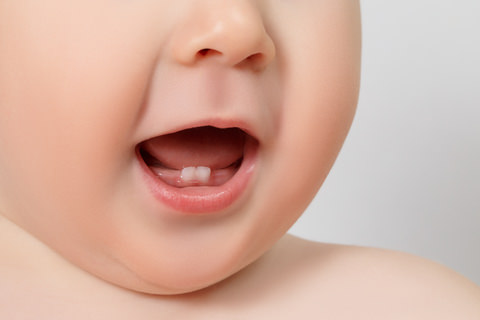Morning Breath in Children: What Should You do?
When our kids have bad morning breath it can be quite intense and embarrassing.
The easiest solution to getting rid of the bad smell and almost all dental problems lies in adhering to a positive daily brushing and flossing routine.
Getting rid of bacteria will most likely get rid of halitosis, or bad breath as it’s commonly known.
There are multiple reasons and ways to prevent bad morning breath your child experiences.
This post will tackle the problems and offer solutions in detail.
Let’s begin!
How to Get Rid of Your Child’s Morning Breath
Morning breath, medically known as Halitosis, is a common occurrence among children.
Presence and accumulation of bacteria in the mouth can lead to a despising smell.
Unlike other dental problems, bad breath is a problem that can be detected by other people. For a child, this can include peers, schoolmates, and teachers.
Bad morning breath can lead to a child being considered a social pariah – severely undermining their confidence and affecting growth.
For a child’s dental, as well as mental health, it is essential that their oral health is maintained. Here are some ways you can eliminate morning breath:
Brush Twice a Day
That’s the bare minimum you should be persuading your kid to do when concerned about bad breath.
The one in the morning is essential to set you up for the day after several hours of sleep let bacteria roam free inside your mouth.
However, the one at night is just as important as the one in the morning, if not more.
After a whole day of activity where you consume meals and drinks, there is substantial food debris left in the mouth.
Coupled with anything sugary and sticky you might have eaten, it presents a very viable environment for bacteria to flourish.
Brushing before sleeping leads to a cleaner mouth as you head for bed, and not much is left for the bacteria to consume on and replicate the off-putting bad breath that you hate.
If you are aiming for maximum oral hygiene, experts advice brushing after every meal, with a 30 min break after eating.
This break is significant because the teeth are weakened immediately after eating, and the break gives the enamel enough time to strengthen again.
Floss Daily
Floss and toothbrush go hand in hand. Why? Because they both highly complement each other.
While an effective toothbrush takes care of the teeth’s surface and gums, the floss is there to clean where the brush cannot reach.
Places such as crevices, any gaps in or around sensitive teeth where you brush slowly present a risk if a child doesn’t floss.
Such places can help attract food debris and provide a breeding ground for the bacteria to grow.
Flossing ensures you clean your mouth of anything that is stuck somewhere in the tiny pockets in or between your teeth.
Avoid Foods that Cause Bad Breath
Kids don’t really consider what they are eating – the only criteria is that it should taste good to them.
However, as their parents and guardians, it is important to look after their diet.
What they eat has a profound impact on their oral health and the way their mouth smells.
Onions and garlic are the most obvious culprits, but the list extends beyond food items such as canned tuna.
What’s troubling is brushing after consuming such food items is not a permanent solution.
The substances present in such foods that are the actual cause of bad breath make their way into the bloodstream.
They eventually find their way to the lungs where they are ‘breathed out’ – resulting in bad breath.
The only possibility is to minimise their intake, and better yet, get them off the dinner table completely.
Clean Your Tongue
Besides the teeth and gums, oral hygiene also comprises cleaning the tongue. The tongue is a staple part of your oral hygiene and should be taken care of.
The coloured coating that forms on your tongue can become a host for bacteria. As the brush rubs against the teeth, the bacteria can also make way to the tongue.
Gently brushing the tongue can help in cleaning the tongue.
However, the toothbrush can be too big and cause a person, especially children, to gag.
Tongue-specific cleaning equipment, such as scrapers assist, in cleaning the tongue effectively without causing discomfort.
Moreover, your tongue is also home to dead bacteria cells.
Scraping your tongue not only effectively cleans it, but also helps get rid of food debris and dead cells that are left behind.
Rinse Your Mouth
Kids who are over the age of six can use special kids Mouthwash products.
The thing to remember about mouthwash is it only freshens the breath and doesn’t tackle the real issues at hand when it comes to bad breath.
If you choose to use mouthwash to assist your child, always follow the instructions and stick to the kids only formula.
Chewing Gums and Mints Don’t Help
Despite the freshness and change of taste they bring, gums do more bad for your child’s gum than good.
Here’s why: chewing gums that aren’t sugar-free are rich in sugar, and they stimulate saliva.
The bacteria in your mouth devour sugar.
They use the sugar in the gum to make acid that leads to enamel erosion and tooth decay.
Tooth decay is a major cause of bad breath in both adults and kids.
Sugar-free gum
Sugar-free chewing gum has its own set of concerns.
This type of gum dries up the saliva in the mouth after a while.
Saliva is the body’s natural defence mechanism against bacteria.
A dryer mouth means more bacteria, and bad breath when your kid wakes up in the morning.
Your Dentist Is Your Ally
Most parents are very cautious about their child’s health and understandably so.
Bad breath can be a sign of even worse conditions lurking inside your child’s mouth.
If your child’s bad breath problem doesn’t improve, even after taking the steps mentioned above, then they require a visit to the dentist.
A dentist is likely to identify the problem and advise the correct course of action that can help your child’s oral health.
Why do Children Experience Bad Breath?
Childhood is reckless, adventurous, and fun.
While it should remain that way, adults need to take care of their children.
Children experience bad breath due to various reasons that stem from their innocence and general lack of awareness of things.
Here are some of the top reasons why children experience bad breath.
Poor Oral Hygiene
A poorly maintained oral health routine is one of the most-cited problems in children.
They hate brushing once, never mind twice.
However, it is important to push your kids toward healthy oral hygiene.
Irregular and incomplete brushing may fail to remove plaque and bacteria effectively.
Not removing plaque is the leading cause of bad breath and is a result of poor oral hygiene. Here’s how:
- Dental plaque is created by the accumulated bacteria in the mouth that thrives on the food debris left behind – oral hygiene maintenance gets rid of the food debris.
- Dental plaque is found between the teeth, behind the teeth, on the front of the teeth – these are places that can only be accessed by the much emphasised-upon floss.
Dry Mouth
Saliva is the first and foremost protection against bacteria accumulation in the mouth. It keeps on washing the bacteria and does not let it accumulate.
Foods that dry the mouth, such as chewing gums, can cause xerostomia.
This is a condition where the body does not produce enough saliva which leads to excessive dryness.
This is partially the reason why children, and people, experience bad breath in the morning.
During sleep, our muscles relax. Including the muscles that make saliva.
Lack of saliva causes a dry mouth, increasing the bacteria and eventually leading to bad breath.
Foreign Objects in Mouth or Nose
While it may seem bizarre, a child’s bad breath can be a result of something being stuck in their nasal passage.
Kids, being naïve as they are, can insert tiny items such as beads, toys or food that can get lodged in their nasal passage and give off a strong pungent smell.
Breathing With Their Mouth Open
Kids often sleep with their mouth open. This might be due to habit or due to a blocked nose.
An open mouth is a dry one, as it does not produce saliva.
Dryness in the mouth accelerates bacteria growth and leads to bad breath.
Infected Tonsils
Usually, healthy tonsils should be pink, spot-free, and cause bad breath.
However, infected tonsils are red, inflamed, have white spots and smell bad.
Bacteria can collect in the pits of such infected tonsils.
Paired with the sour smell of infection, they can cause bad breath.
If your child’s tonsils look swollen or red, your pediatrician should examine them and prescribe an antibiotic to help take care of the problem.
Medications
Medicines generally leave a sour taste in the mouth and can cause the breath to smell stale.
Continuous use of antibiotics for an extended period (such as a month or more) may cause bad breath in children.
There is an extensive list of medicines that may cause the breath to smell bad or cause the mouth to dry up and eventually cause bad breath.
Examples of such medications include:
- Antipsychotics.
- Antidepressants.
- Antihistamines.
- Antispasmodics.
- Bronchodilators can cause dry mouth or xerostomia.
Other Medical Problems
Halitosis, or bad breath as it is called, sometimes indicates the presence of a medical condition.
Bad breath can be a result of respiratory conditions such as sinus, asthma, and enlarged adenoids. These diseases are common causes of bad breath in kids.
Other conditions which can cause bad breath in kids include diseases such as the following:
- Diabetes
- Gastric infection
- Kidney failure
- Liver problems, etc.
Although the frequency is rare, these problems can cause bad breath in kids.
Another condition where kids need help is the psychological impact of bad breath.
In some cases, halitosis can also be psychological, where a kid believes that he or she has bad breath and gets obsessive about it.
However, this is rarely the case.
Conclusion
Bad breath is a common problem that kids face when growing up.
Caused by negligence towards oral hygiene and other various factors, it represents a small problem that can be easily tackled firmly through oral hygiene maintenance.
Remedies to counter bad breath involve basic oral hygiene maintenance rules that are quite simple and easy and should be taught to children.
Did your child ever experience bad breath? What did you do to fight it?
By Andrew Adams
Created at October 30, 2018, Updated at October 13, 2021


